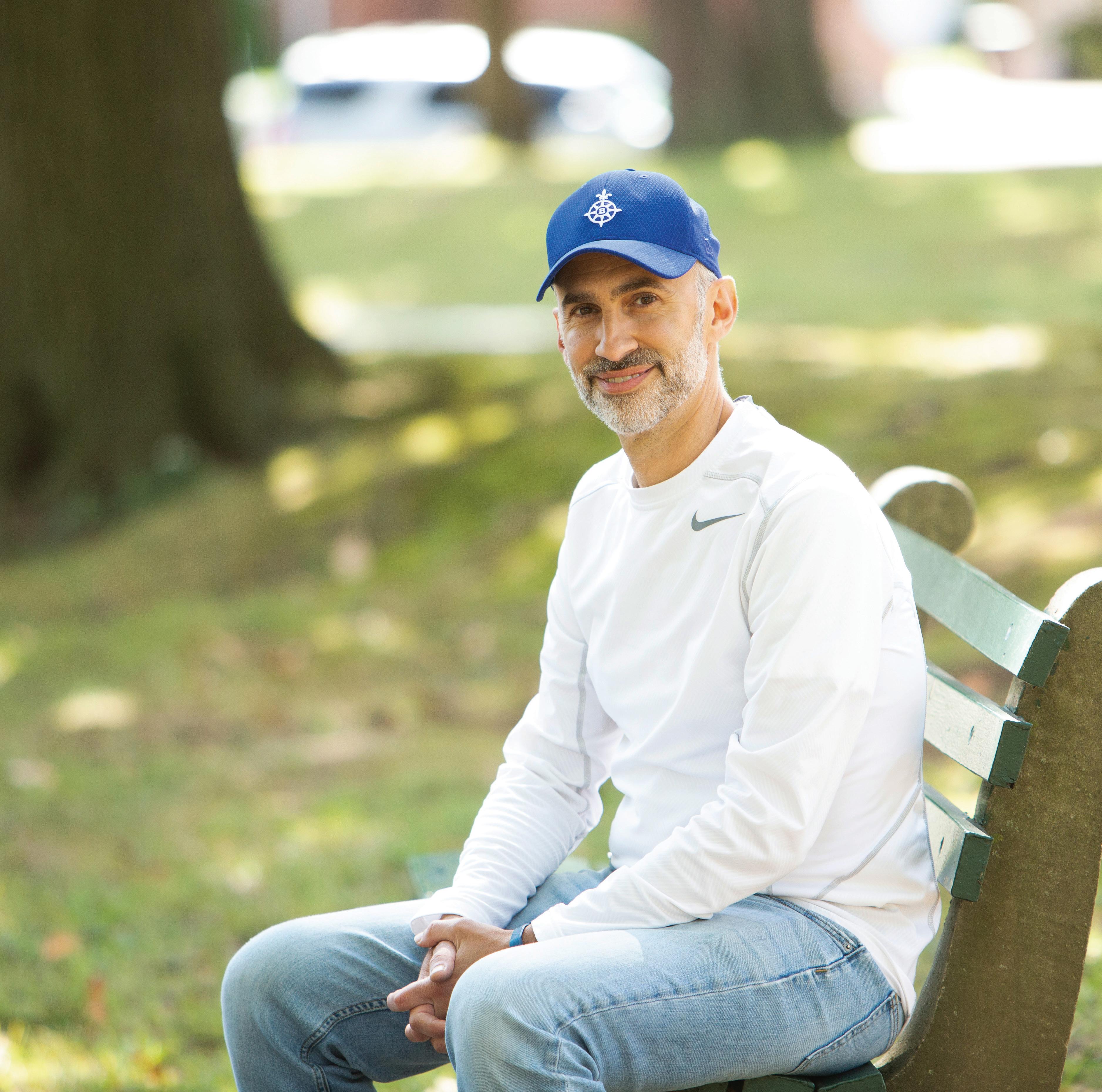
4 minute read
A MYSTERY SOLVED, A LIFE SAVED
Joe Bilotta, 55, is thriving after an emergency quadruple bypass at Jersey City Medical Center.
COMPREHENSIVE CARE BY A TOP CARDIAC TEAM UNCOVERS HIDDEN HEART DISEASE IN A BAYONNE MAN.
For Joe Bilotta, 55, a lifelong resident of Bayonne, shortness of breath came on slowly in 2019. Despite a series of doctor visits, the cause remained a mystery.
Then, in a sudden turn in July 2020, Joe found he could not catch his breath even while resting. He realized he could not wait one hour longer.
“I had another medical test scheduled for the next week,” he says. “But that day, the appointment felt like a year away. I didn’t think I would survive the wait.”
Th ough he was in generally good shape, with a healthy weight, he was in serious trouble. In fact, he was destined for quadruple bypass surgery in just a few days.
“Based on my lifestyle, my overall
health and even family history, I’m the last person anyone would think had a heart condition,” Joe says. “I did have shortness of breath and wheezing. But I don’t smoke. Some doctors thought it was asthma.”
That July day, Joe’s wife, Anna, took him to the Emergency Department (ED) at Jersey City Medical Center (JCMC), just 15 minutes from their home. In the next hours, they learned the lifesaving importance of a deep bench of specialists.
A DIFFICULT DIAGNOSIS
“More commonly than you would think, people have heart conditions even when they have no other risk factors,” says JCMC interventional cardiologist Vladimir Znamensky, MD, who is also a member of RWJBarnabas Health Medical Group.
Chest pain, chest pressure and shortness of breath are the classic symptoms, and family history can help determine risk, Dr. Znamensky explains. But less common signs, such as fatigue that’s not explained by other factors, or shortness of breath in someone who’s otherwise healthy, can be clues.
“When a patient has no obvious risk factors for heart disease, one of the most difficult questions for a cardiologist to answer is, ‘What is this person’s risk of having—or getting— heart disease?’” says Dr. Znamensky.
At the ED, physicians quickly reviewed all of Joe’s prior tests and ran new ones. They consulted with Mitchell Baruchin, MD, a cardiologist at JCMC and a member of RWJBarnabas Health
MITCHELL BARUCHIN, MD TYRONE KRAUSE, MD
Medical Group, whom Joe had begun seeing just days before. Dr. Baruchin had given Joe a cardiac stress test, and the results concerned him, so he had scheduled a cardiac catheterization—in which a thin, hollow tube is inserted into a large blood vessel that leads to the heart—for the following week.
Now Dr. Znamensky performed a cardiac catheterization in the cardiac catheterization laboratory. Th e results showed that Joe had four blocked blood vessels. His heart was getting only 10 to 30 percent of normal blood fl ow from them.
“Before I even left the cath lab, Dr. Znamensky told me I had a pretty serious situation,” Joe says. “He said I needed a quadruple bypass.” After months of chasing down answers, this news felt like “a train coming at me 100 miles an hour,” he says.
QUICK ACTION
Still in the cath lab, he met Tyrone
Krause, MD, Chief of Cardiothoracic
Surgery and Chair of Surgery at JCMC, also a member of the RWJBarnabas
Health Medical Group. Dr. Krause, who has performed approximately 10,000 cardiac surgeries, spoke to Joe about what the procedure entailed and what kind of care he would get at JCMC.
Because of the severity of the case, there was no time to lose.
Despite the tight time frame, Joe felt reassured by his conversation with
Dr. Krause and ready for the next step. After a short time, Dr. Krause performed the quadruple bypass. Just a few days after surgery, Joe was up and walking, and amazed at his experience. “I know firsthand that they all—the doctors and the nurses— have incredible commitment, dedication and compassion,” Joe says. “If anyone VLADIMIR ZNAMENSKY, MD needs cardiac care or
UNEXPECTED SIGNS OF HEART DISEASE
Pain or pressure in the chest, shortness of breath or numbness in the left arm are common symptoms of heart disease. Other symptoms are less well known, but call for medical attention: • Nausea • Feeling lightheaded • Pain in the jaw or ear • Swelling in the legs • Dry or hacking cough • Sudden, unexplained weight gain • Fatigue “Listen to your body,” says Vladimir Znamensky, MD. “If you have symptoms that continue, that you can’t explain, talk to your doctors. Don’t delay.”
even surgery, I recommend Jersey City Medical Center.”
“We do have a very strong cardiology program here, and excellent collaboration,” Dr. Znamensky says. “It’s rewarding to be a part of this teamwork, where there’s such an effort to make the best decision for a specific patient at a specific time.”
Joe was part of his own success, too, Dr. Znamensky says. He realized that something wasn’t quite right, and he and his wife searched for answers.
Today, Joe has returned to his regular three-mile walks with Anna. And they look forward to celebrating their 30th wedding anniversary with a trip to Europe, he says, “as soon as possible.”
Your heart doesn’t beat just for you. Get it checked. To find a cardiac specialist at Jersey City Medical Center, call 888.724.7123 or visit www.rwjbh.org/heart.










